Donald Trump’s film tariff threat sparks fears in Australian movie industry, global entertainment
An Australian producer has issued a blunt warning to US President Donald Trump over his latest tariff threat, warning it could spell disaster for Hollywood.
Entertainment
Don't miss out on the headlines from Entertainment. Followed categories will be added to My News.
An Australian producer has slammed Donald Trump’s threat to impose tariffs on foreign-made films, calling it a “headline grab” that ignores how the screen industry actually works.
Mr Trump’s announcement that all films made outside the US would be hit with a 100 per cent tariff was described as a bombshell on the eve of Cannes, the world’s most famous international movie marketplace.
Many countries like Australia lure the film business to their shores via tax incentives - a business strategy that Mr Trump has now described as a “national security threat” to the United States.
Louise Schultze, a producer attending Screen Forever on the Gold Coast this week said Trump’s threat to slap tariffs on foreign made films is a “headline grab” from someone who “clearly has no idea how the screen industry actually works.”
“You can’t tariff creativity. Film and television are built on international collaboration and often buyers don’t even know what countries are involved in making a show when they acquire it,” she said.
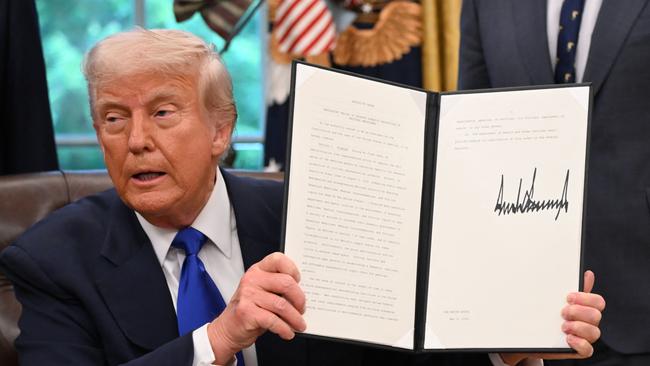
“Ask Trump where the Tom Hanks film Elvis was made. I bet he doesn’t know it was shot in Australia and directed by an Australian.”
“With strikes, fires and now trade threats, if Trump continues down this path it will be the final nail in the coffin for Hollywood. Meanwhile, Australia is already stepping up. “We have the studios, the talent and the track record. We have already locked in three major international co-productions this year and none with the US. The rest of the world wants co-productions not walls. The data is clear. Audiences want stories that connect across borders. Australia is ready to lead.”
Mr Trump announced on Truth Social had made the announcement on Monday saying the “movie industry in America is dying a very fast death”.
“Other countries are offering all sorts of incentives to draw our filmmakers and studios away from the United States. Hollywood, and many other areas within the USA, are being devastated.
“This is a concerted effort by other nations and, therefore, a national security threat. It is, in addition to everything else, messaging and propaganda.”
The US president said he had authorised his commerce department and trade representative to immediately move to institute a 100 per cent tariff on all movies produced in other countries.
“We want movies made in America again,” he said.
Although much is unclear about how such tariffs will be imposed, US Commerce Secretary Howard Lutnick replied to President Trump’s statements on X writing, “We’re on it.”
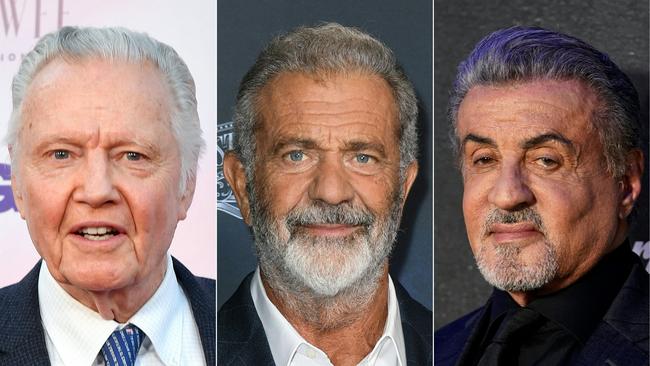
Mr Trump reiterated that he had appointed Hollywood heavyweights Sylvester Stallone, Mel Gibson and Jon Voight as special ambassadors with a goal of bringing back film business lost to foreign countries.
“They will serve as special envoys to me for the purpose of bringing Hollywood, which has lost much business over the last four years to foreign countries, back – bigger, better, and stronger than ever before,” Mr Trump said.
“These three very talented people will be my eyes and ears, and I will get done what they suggest.
“It will again be, like the United States of America itself, the Golden Age of Hollywood.”
Here’s what 100 per cent tariffs could mean for the Australian film industry and Australian audiences.
Is Trump correct that Hollywood and US movies are dying?
Over the years, international tax breaks have caused an exodus to overseas production locations such as Australia, England, Canada, Hungary, and New Zealand, according to The Hollywood Reporter.
FilmLA reports that US production dropped nearly 40 per cent in the past decade.
Production spending in the US is down 26 per cent since 2022.
But the world’s top 10 movies made last year still all came from the United States.
What has the Australian government said?
NSW Premier Chris Minns described Trump’s tariff plans as “a bad decision”.
“This is a bad decision for films and movies whether they’re made in Australia or the United States,” Mr Minns said in a statement.
“It’s short sighted and won’t work. We’ll be defending our screen industry as well as the local jobs it creates.
“NSW is home to more than half of Australia’s screen production businesses and film industry. It’s estimated to be around $1.15 billion to the local economy.
“We’re talking films like Mad Max: Fury Road, The Great Gatsby, The Fall Guy, Anyone But You. These are major movie productions.”
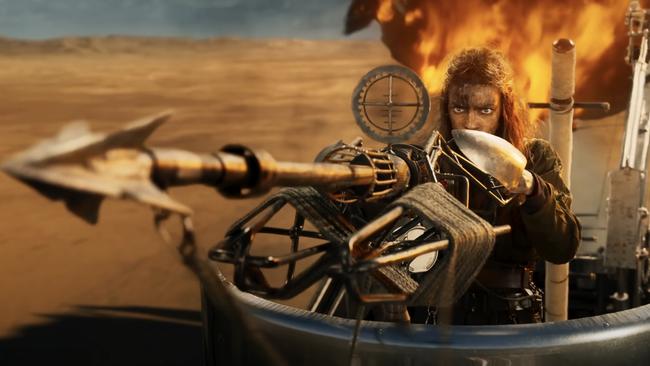
According to the Guardian, Australia’s home affairs minister Tony Burke said he had spoken to the head of the government body Screen Australia about the proposed tariffs.
“Nobody should be under any doubt that we will be standing up unequivocally for the rights of the Australian screen industry,” he said in a statement.
What are film industry people saying?
Screen Producers Australia CEO Matthew Deaner said it was unclear what the announcement would mean but called on the government to act swiftly to help safeguard the future of the industry.
“There are many unknowns for our industry, but until we know more, there’s no doubt it will send shockwaves worldwide,” he said.
“For the Australian industry, it reinforces the need for the government to focus immediately and swiftly on building a resilient local industry that can withstand global shocks like this.
“As we get set for our annual Screen Forever conference … we’re certain today’s announcement will be the catalyst for many, many conversations between local and international industry executives and screen professionals.”
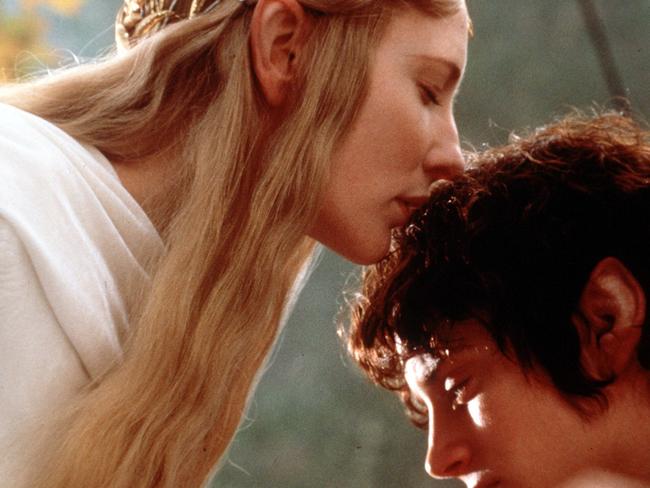
“This makes no sense,” a UK producer told Variety. “It implies that a U.S. film is meant to shoot in the U.S. But the ‘Harry Potter’ films, ‘Lord Of The Rings,’ ‘Schindler’s List,’ ‘Mission Impossible,’ ‘Gladiator,’ ‘Aviator’ and so many more are U.S. films that shot overseas for obvious reasons. Do these films have to shoot in the U.S. from now on? It’s an absurd announcement with no meaning nor understanding of storytelling or creative impulses.”
Henning Molfenter, a German producer who has worked on The Matrix Resurrections told The Hollywood Reporter: “(I)t’s not clear what will be impacted. Is it just movies, or also streaming series? Is it visual effects, co-productions, international film financing? There’s a huge degree of uncertainty.”
What about Netflix and other streamers?
Donald Trump’s initial social media declaration mentions “movies,” but increasingly, feature films are being made exclusively by streaming services such as Netflix, Hulu and Amazon.
If the tariffs also apply to series production it would be a huge blow to Netflix and other streaming giants such Amazon, Disney+ and HBO Max, whose catalogues have much foreign content, realistic exotic locales, and which have been built on a global subscriber base.
And of course, Australia’s locations are not reproducible in any other country.
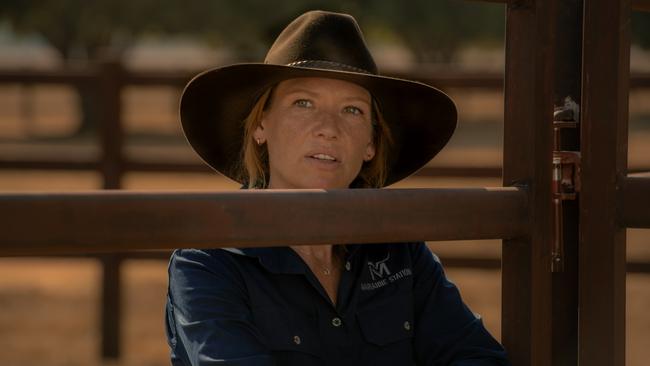
The Netflix series Territory was filmed in South Australia and the Northern Territory and is the largest Netflix production ever filmed in South Australia.
The neo-western drama, primarily shot in the remote outback, included locations like Kakadu National Park and Tipperary Station.
The show injected A$6.8 million into the Northern Territory economy in direct spending and was supported by A$1.3 million in funding from the Northern Territory Government while the South Australian Film Commission provided A$7 million in funding for the production.
In the case of Mr Trump’s tariffs, US Netflix would then have been hit with a big bill for the privilege of using authentic Aussie scenery.
It gets even more complicated with The Narrow Road to the Deep North, which was filmed primarily in New South Wales in late 2023 and was a co-production between companies
Curio Pictures, Screen Australia, Amazon MGM Studios, and Sony Pictures Television.
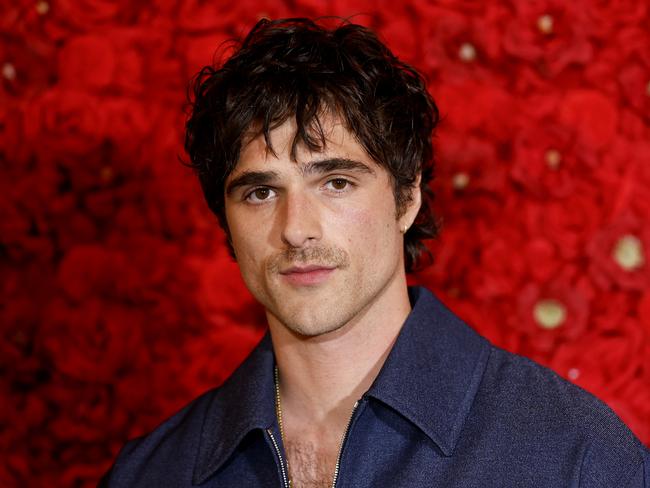
And what about hit shows that originate in other cultures such as Korea but are sold largely into the American market?
A UK sales agent told Screen Daily: “Would a show like Squid Game be taxed in the US for American subscribers to watch? or would it be taken off the service all together in America to avoid the tariff?”
Will films in production be hit by tariffs? Can the tariffs be applied retroactively?
The latest instalment in the Godzilla franchise is currently filming on the Gold Coast and in February, filming began on action thriller Bear Country starring Russell Crowe which was expected to inject more than A$11 million into the local economy.
In December, Screen Queensland announced a new Anaconda film, featuring Jack Black and Paul Rudd would be shot in the state in a A$40 million windfall.
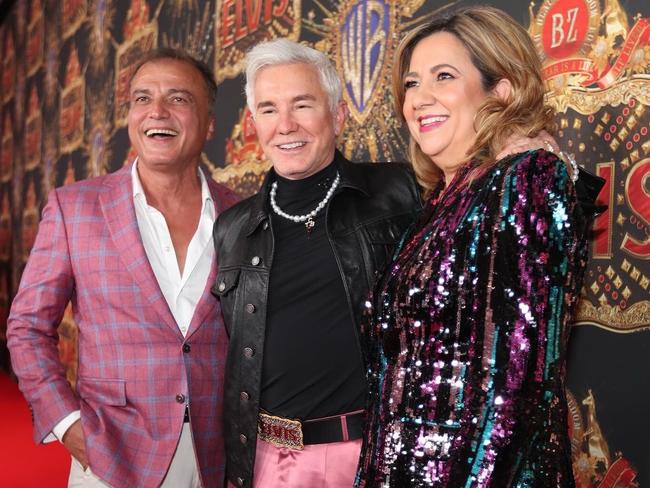
Baz Luhrmann’s Elvis movie is estimated to have brought over A$130 million to the Australian economy, with Queensland’s Gold Coast being the primary filming location.
The production employed around 900 locals.
The film also created numerous jobs in other states like New South Wales for visual effects and post-production work.
How will President Trump’s tariffs factor into production and distribution budgets that have already been set?
Mel Gibson is currently planning to shoot his Passion of the Christ sequel in Italy, but will he change this plan in the face of a 100 per cent tax hike?
What does ‘foreign lands’ really mean?
How will the Trump administration classify movies “produced in foreign lands”?
Is he talking about foreign films that are bought by studios and distributed in the US, or domestic films that go overseas to, for example, Australia as part of production. Or both?
Does including any scene or sequence of a movie shot outside the US, no matter how brief, qualify and expose the film to 100 per cent tariffs?
If a certain percentage of a film’s budget comes from international production incentives or non-US-residing producers will it be taxed as “foreign”?
Will ticket prices and streaming subscription fees go up?
It is highly likely, since making a film in the US, which lacks the federal tax incentives offered in Australia, the UK, and Europe, can be 30 to 40 per cent more expensive.
US crews and stars are also more expensive than their international counterparts, largely because of US unions.
The 2023 SAG-AFTRA strike lasted five months and contributed to the biggest interruption to the American film and television industries since the Covid-19 pandemic.
It created a shortage of new movies and TV shows, as it halted production and delayed releases for many projects.
The strikes were estimated to have cost the film and television industry billions of dollars due to halted production, reduced spending, and staffing cuts, according to Camoin Associates. Studios had to look elsewhere for content, including foreign films.
How has the market responded?
Shares in entertainment firms slid after Mr Trump said he was ordering new tariffs on all films made outside the United States.
Shares in Netflix and Warner Bros. Discovery were down around three per cent, while Lionsgate fell more than five per cent.
Shares in Paramount dropped more than two per cent and Disney 1.5 per cent.
Could Trump’s plan backfire?
The risk of tariffs on foreign production is that they increase the likelihood that other countries will retaliate.
US movies make the majority of their money from international sales, while streaming services like Netflix, Disney+ and Amazon produce shows for global audiences in dozens of markets.
So equal reciprocal tariffs on American film products could damage the US film and TV industry, which has already been up-ended by strikes, streaming, Covid, and AI.
Last month, China restricted imports of Hollywood movies in retaliation to punishing tariffs imposed by the US.
Australia does not currently impose tariffs on entertainment imports from the US due to the Australia-United States Free Trade Agreement (AUSFTA).
Australia previously planned to impose mandatory quotas for non-US content on streaming platforms like Netflix and Disney+, but these plans have been shelved indefinitely.
Free-to-air commercial television stations are required to broadcast a minimum of 55 per cent Australian content between 6am and midnight, but no such restrictions apply to streaming platforms currently.
More Coverage
Originally published as Donald Trump’s film tariff threat sparks fears in Australian movie industry, global entertainment
Read related topics:Donald Trump




